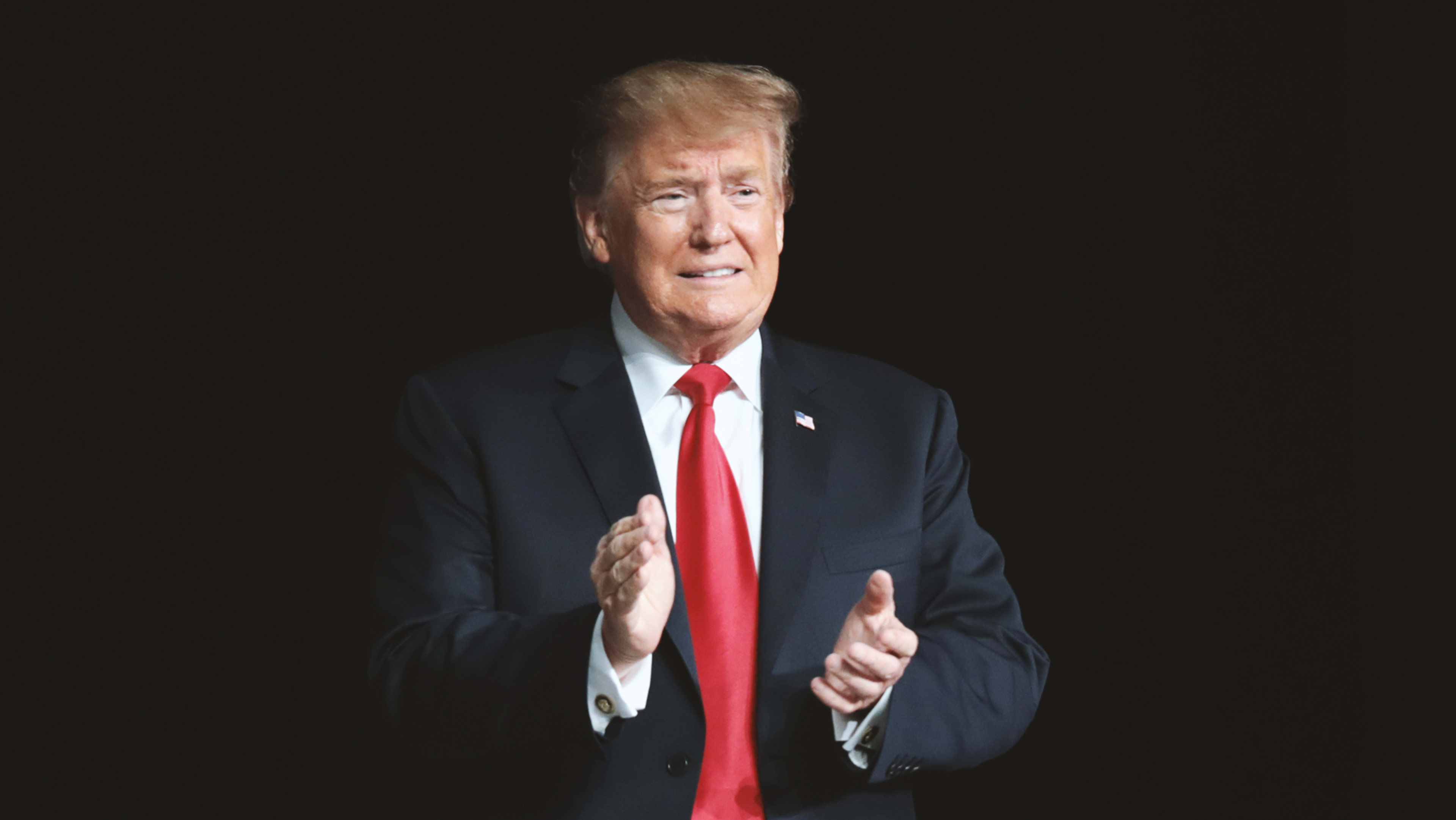Donald Trump’s speech in front of his base at the National Rifle Association convention in Indianapolis was one long dog whistle. And the whistle was loudest when the president promised his administration would not approve a global treaty restricting the sale of weapons to human rights-abusing nations and terrorist organizations. In fact, Trump, after some effort, got a standing ovation from the crowd.
Trump’s comments about the treaty begin at 1:05:40 in this video of the speech:
Trump called the 2013 Arms Trade Treaty “badly misguided” and said that removing the U.S. from it will help protect the 2nd Amendment rights of Americans.
“This threatened your, subjugate . . . and you know exactly what’s going on here . . . your rights, and your constitutional and international rules and restrictions and regulations,” Trump said. “Under my administration, we will never surrender American sovereignty to anyone. We will never allow foreign bureaucrats to trample on your Second Amendment freedoms.”
There is no language in the treaty that affects domestic laws governing gun sales or ownership.
The treaty, which was brokered by the United Nations in 2012 and 2013, put restrictions on the sale of arms to countries that don’t protect human rights. At the time the U.S. exported about 90% percent of the arms that crossed borders.
Then Secretary of State John Kerry signed the U.S. into the Arms Trade Treaty at the United Nations in 2013. The U.S. was the 91st country to sign the treaty, which received overwhelming support from the the UN’s 193 member states. The only countries that didn’t sign were Iran, North Korea, and Syria. 103 countries have ratified it so far.
The treaty was never ratified by the U.S. Senate, which faced fierce pressure from the NRA. President Obama signed it, however, and NRA members no doubt remember this, hence the enthusiasm over Trump’s rejection of the treaty Friday.
Trump has a disdain for treaties entered into by his predecessors. In early February, for example, the White House suspended the Intermediate-Range Nuclear Forces treaty, citing repeated violations of the treaty by Russia.
There were no expectations that the Republican-controlled Senate would ratify the Arms Trade Treaty, but Trump savored the spectacle of rejection. On stage, he signed an order refusing to ratify the treaty, and tossed the pen into the audience.
After the standing ovation, Trump said of the treaty: “I’m impressed, I didn’t think too many of you would know what it is. You know what it is? A big, big factor. But I see a couple of happy faces from the NRA.”
The NRA has been an outspoken Trump supporter, and has raised millions for his campaigns, past and present.
Not everyone in the audience appeared to be a supporter. As Trump approached the lectern to begin his speech, a cellphone flew toward the stage. A man in the audience was detained.
https://twitter.com/xeni/status/1121833727955312641
UN spokesman Stephane Dujarric said in a statement that the treaty that the White House is choosing not to ratify is “a landmark achievement in the efforts to ensure responsibility in international arms transfers.”
The Arms Trade Treaty, he said, is “particularly important in present times, when we witness growing international tensions and renewed interest in expanding and modernizing arsenals.”
Recognize your brand’s excellence by applying to this year’s Brands That Matter Awards before the early-rate deadline, May 3.
